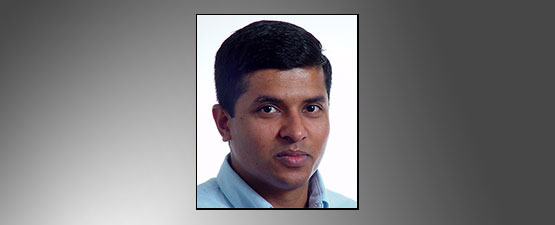SPS-ASI Webinar: Socio-Physically Interactive Mobile Collaborative Robots
Date: 30 March 2023
Time: 8:00 AM PST | 5:00 PM (CEST)
Presenter(s): Arash Ajoudani

Date: 30 March 2023
Time: 8:00 AM PST | 5:00 PM (CEST)
Presenter(s): Arash Ajoudani
The Signal Processing Society (SPS) conducts webinars presented by professionals in the field of signal processing and related technologies on an ongoing basis. Webinars are also hosted periodically by SPS Technical Committees, and other network of communities. Visit the Upcoming Events page to see a list of our upcoming webinars and join us!

Date: 8 March 2023
Time: 7:00 PM ET (New York Time)
Title: Power Scaling of Uplink Massive MIMO Systems with Arbitrary-Rank Channel Means

Date: 10 March 2023
Chapter: Gujarat
Chapter Chair: Chirag Paunwala
Title: Wearable Sensor Signal Processing and Data Analytics for Health Applications
A computational experiment is deemed reproducible if the same data and methods are available to replicate quantitative results by any independent researcher, anywhere and at any time, granted that they have the required computing power. Such computational reproducibility is a growing challenge that has been extensively studied among computational researchers as well as within the signal processing and machine learning research community.
Visualizing information inside objects is an everlasting need to bridge the world from physics, chemistry, and biology to computation. Among all tomographic techniques, terahertz (THz) computational imaging has demonstrated its unique sensing features to digitalize multidimensional object information in a nondestructive, nonionizing, and noninvasive way.
Electromagnetic (EM) imaging is widely applied in sensing for security, biomedicine, geophysics, and various industries. It is an ill-posed inverse problem whose solution is usually computationally expensive. Machine learning (ML) techniques and especially deep learning (DL) show potential in fast and accurate imaging. However, the high performance of purely data-driven approaches relies on constructing a training set that is statistically consistent with practical scenarios, which is often not possible in EM-imaging tasks. Consequently, generalizability becomes a major concern.
Thanks to the tremendous interest from the research community, the focus of the March issue of the IEEE Signal Processing Magazine is on the second volume of the special issue on physics-driven machine learning for computational imaging, which brings together nine articles of the 19 accepted papers from the original 47 submissions.
As I am writing this article, I am wrapping up a trip as IEEE Signal Processing Society (SPS) president to Doha, Qatar (9–11 January), to speak at the 2022 IEEE Spoken Language Technology (SLT) Workshop, and India (12–16 January), for technical talks and meetings with local signal processing researchers and SPS local Chapter chairs.
The LivePerson Centre for Speech and Language offers a 3 year fully funded PhD studentship
covering standard maintenance, fees and travel support, to work on deep neural network adaptive
learning modules for speech and language. The Centre is connected with the Speech and Hearing
(SpandH) and the Natural Language Processing (NLP) research groups at the Department of
Computer Science at the University of Sheffield.